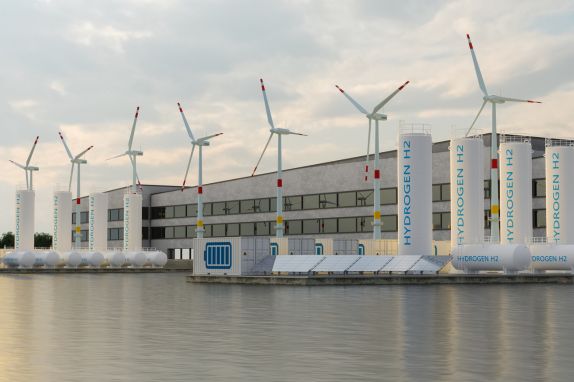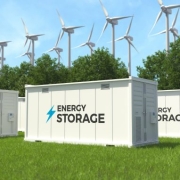The power of energy storage
Energy storage plays a crucial role in the transition to sustainable energy provision. With the growth of renewable energy sources such as solar and wind energy, the development of advanced energy storage technologies becomes increasingly important. In this article, we delve deeper into the evolution of energy storage and its impact on the energy grid.
How does energy storage work?
Battery systems
One of the most well-known forms of energy storage is battery systems. These systems store electricity in chemical energy, which can later be converted into electricity when needed. This enables the use of energy at times of high demand, even when the production of renewable energy is low.
Other advanced energy storage technologies
In addition to battery systems, there are also other advanced energy storage technologies in development, such as liquid air storage, thermal storage, and hydrogen storage. These technologies offer various advantages and can complement battery storage.
Importance of energy storage for renewable energy
Reliability
Energy storage enhances the reliability of renewable energy sources by mitigating the variability of solar and wind energy. This allows for a constant and stable power supply to be ensured regardless of weather conditions.
Flexibility of the energy grid
By implementing energy storage, the energy grid becomes more flexible. This enables energy to be stored when demand is low and released when demand peaks. This allows energy companies to manage available energy sources more efficiently.

Benefits of advanced energy storage technologies
Sustainability
Advanced energy storage technologies contribute to the sustainability of energy provision by optimizing the use of renewable energy sources. This reduces dependence on fossil fuels and decreases CO2 emissions, thereby contributing to the fight against climate change and the achievement of sustainability goals.
Cost savings
Energy storage allows energy companies to save costs by reducing peak loads and managing the energy grid more efficiently. This can lead to lower energy bills for consumers and businesses.
Challenges and solutions
Storage capacity
One of the main challenges for energy storage is increasing storage capacity so that large amounts of energy can be stored for longer periods.
Battery lifespan
For battery systems, battery lifespan is a significant concern. Innovations in battery technology are aimed at extending lifespan and improving performance.
Environmental impacts
While energy storage technologies contribute to reducing CO2 emissions, they can also have environmental impacts, such as the extraction of raw materials for batteries. It is important to minimize these effects and develop sustainable solutions.
Future of energy storage
The energy storage market is growing rapidly, driven by increasing demand for renewable energy and the need for flexible energy solutions. This presents opportunities for investment and economic growth. The future looks promising, with ongoing innovations and growing market opportunities, energy storage will continue to play a crucial role in the energy transition.
Looking for an IT professional with experience in the energy sector? Contact Mike van Strien at mvanstrien@g-nius.nl or +31 6 29 45 08 12.






